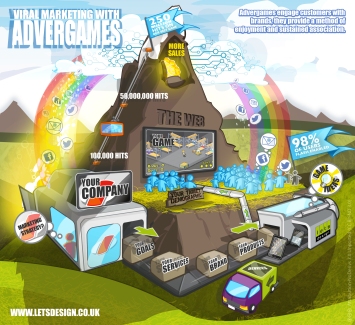Digital storytelling is a fascinating concept because it goes beyond a typical advertisement. According to Ignite Social Media, “today, instead of talking at the customer, companies are successfully talking to them, and customers are talking back. Advertising has left the rarefied atmosphere of one-way communication and entered the public arena. Companies who manage to harness the power of the public meet roaring success. The key: Company image and actions must meet the standards of the brand story. Today’s customers demand truth, and companies that can’t deliver are crucified across all platforms of social media.”
A great example of a brand that does digital storytelling well is Subaru. In 2009, Subaru collaborated with Carmichael Lynch, an advertising agency, to create the Love campaign. “Love. It’s what makes a Subaru, a Subaru.” became the new tagline and the company still uses it today. Carmichael Lynch has seen a lot of success with the campaign and stated that, “since beginning our Love campaign, Subaru has tapped into powerful human emotions to double market share and surpass eleven other car makers on America’s list of best-selling auto brands”. With the Love campaign being received positively by consumers, Carmichael Lynch decided to expand the campaign and introduce Dear Subaru. This campaign also began in 2009 and encourages Subaru owners to share their photos and stories about why they love their vehicles. Dear Subaru was launched as a multichannel campaign, however, even after the paid media ended, its owner-centric Facebook app continues to function and serves as a story hub. Readers can scroll through various stories, filter the stories based on themes, and view the ads that were created based on customer stories. Several stories from Facebook are also uploaded to Subaru’s main website. When the campaign first launched, over 150 to 200 Dear Subaru stories were uploaded each week.
It is widely known that Subaru owners are passionate about their cars and are loyal to the brand. “If you ask a Subaru owner what they think of their car, more times than not they’ll tell you they love it,” said Alan Bethke, director of marketing communications for Subaru of America. The Dear Subaru platform provides owners with a fun way to interact with the brand and share their passion. What I liked about this campaign is that Subaru took the stories and used them within its own advertising. What better story to tell than one from a loyal customer? The stories include how the vehicle saved lives, took them on adventures, helped them plow through snow, and much more. Subaru prides itself on the longevity, safety, versatility and adventure its cars can offer a consumer. These stories continue to strengthen the company’s reputation and encourage conversation about the Subaru brand. Owners are sharing their stories on the site, but often the conversations will extend from online to offline.
I think Subaru’s use of user-generated content through the Dear Subaru campaign is fantastic. Subaru is providing its owners with the opportunity to tell the brand’s story through photos and personal testimonies. One Spot posted a great infographic that takes a look at the science behind storytelling. Dear Subaru does an excellent job of showing and not telling its compelling content and its digital story.






